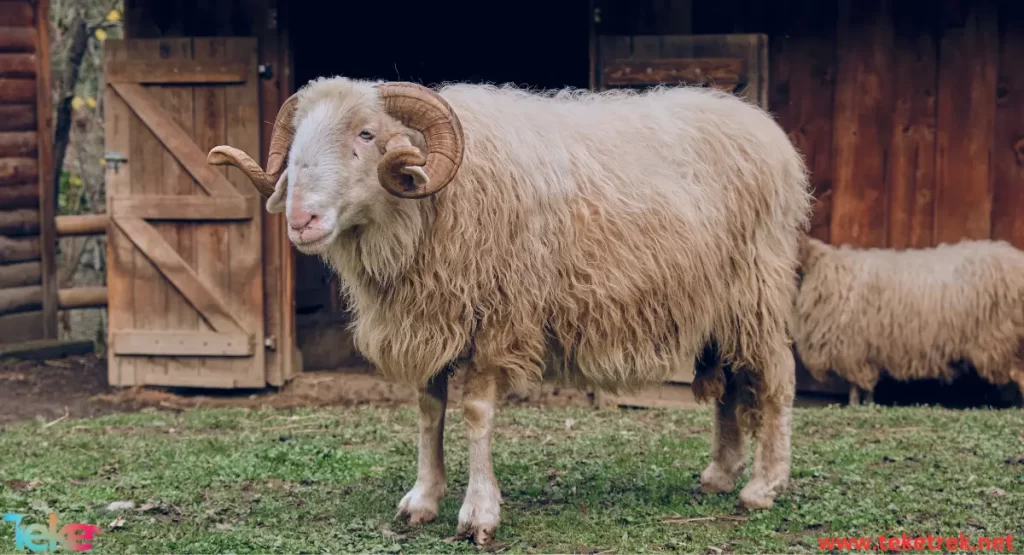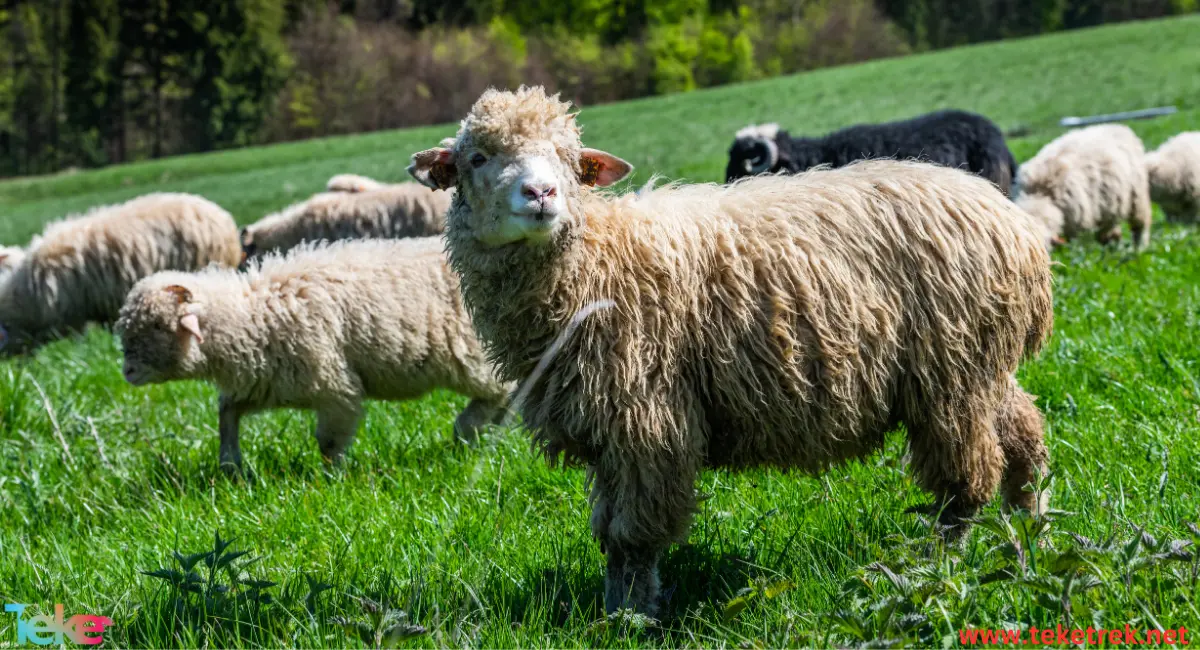The Jaziri sheep is considered one of the most important types of sheep found in the Arabian Peninsula due to its cultural and popular importance, as it is very popular among breeders and farmers who raise sheep in the region. If you are interested in raising this type of sheep, we will present to you in this article the most important characteristics and features of this type, in addition to its qualities, how to raise it and ways to care for it. Follow this article with us from Teke Trek.

important characteristics of Jaziri sheep
The male sheep is called a ram, and is also called a ram.
The female is called a ewe, and they are all four-legged livestock with double toes.
Man depends on their meat, which is one of the most important sources of protein, vitamins and essential minerals that he needs.
This type of sheep is characterized by a set of characteristics that make it suitable for breeding in the climatic conditions in which it lives, the most important of which are the following:
Jaziri sheep withstand the high temperatures and harsh conditions of the Arabian Peninsula.
The island sheep has a high ability to adapt to climate changes.
Jaziri sheep have high-quality wool, due to its softness.
Despite this softness, this wool protects it from all the changes that the sheep may be exposed to.
The Jaziri sheep is characterized by its very tender and delicious meat, and it is one of the breeds with high meat production.
Jaziri sheep have a calm nature, which makes it easy for the breeder to raise them
These characteristics of this type of sheep have led many breeders to raise it, to benefit from it after the great demand for it in the local and international markets.
What are the characteristics of an island sheep?
The Jaziri sheep is characterized by a set of characteristics, which are as follows:
The Jaziri sheep is a long sheep, and this is a very desirable characteristic among livestock breeders.
Insular sheep have drooping ears.
The Jaziri sheep is characterized by its common color of black, while the face, legs and tail are white.
A ram weighs about 75 kg at the age of one and a half years, while a ewe weighs 56 kg.
Jaziri lamb has an elegant and beautiful appearance, so it can be presented at exhibitions
These general characteristics, in addition to the calm behavior, make the Jaziri sheep the focus of attention of many enthusiasts and breeders.
Nutritional stages of an island sheep
Jaziri sheep depend on the grazing process, which must take place in pastures covered with grass. It performs this process 7 times distributed over 3 stages, which are the early morning, afternoon and before sunset.
The amount of food a sheep needs is determined according to its health condition, weight, and age, as it varies from one age to another.
Insular sheep need energy from pastures, in addition to the hay and grain they eat.
When any amount of these substances decreases, the difference in the production of meat and wool will be noticed immediately, so attention must be paid to the amount of food that the sheep needs daily.
The Jaziri sheep obtains its water needs from the grasses it grazes on or through the drinking water provided to it. The temperature, humidity, and productive condition of the animal play a major role in the amount of water it requires.
Protein, vitamins and minerals are essential needs for this type of sheep, as any decrease in the level of any substance is equivalent to a decrease in its weight and thus a deterioration in its general health condition.
Therefore, the breeder of Jaziri sheep pays great attention to the diet he provides to it, taking into account all its needs.
There are some foods that should not be fed to sheep, which are as follows:
Food contaminated with mold and fungi that cause significant harm and damage to it.
Some types of herbs and crops such as azaleas, chrysanthemums, walnuts, and buttercups, in addition to daffodils and elderberries.
Following a comprehensive diet that contains proteins, minerals and vitamins is the ideal solution to avoid all the problems that can affect an Insular sheep.
Diseases that an island sheep can suffer from
An island sheep may be infected with some diseases that may cause it to lose its life. We will now review some of these diseases as follows:
Bloodworms: They are considered one of the common problems that this sheep may suffer from. The breeder followed a disinfection system to prevent them and thus maintain the safety of his sheep.
Food poisoning: Sheep get it as a result of eating contaminated feed or drinking unclean water. It is prevented by providing a clean and healthy environment for the sheep.
Diarrhea: Insular sheep suffer from gastrointestinal infections or changes in their diet.
Respiratory infections: This disease is a contagious disease that can spread quickly in the herd, so caution must be taken and all preventive measures must be taken to limit its spread if any sheep is infected.
Skin and wool diseases: Insular sheep are exposed to some types of fleas and ticks, which cause these diseases.
Appropriate and rapid treatment must be provided to them, taking into account the constant cleaning of the herd and periodic cleaning of the places where they are raised.
The breeder is advised to cooperate with specialist veterinarians to monitor the general health status of the herd, and to provide the necessary health care to prevent diseases that may cause death to these sheep.

frequently asked questions about Jaziri lamb
How much does an Jaziri sheep cost?
The price of an Jaziri sheep depends on several factors, including: age, gender, health condition, in addition to genetic characteristics, so it is not possible to determine the price of each of them.
How can one distinguish between an island sheep and another sheep?
It is possible to distinguish between Jaziri sheep and other species through the general features of each of them, which are the shape of the head, ears, and body length, in addition to the genetic characteristics that are characteristic of this type of sheep.
Is it possible to raise island sheep in hot areas?
Yes, it is possible to raise island sheep in hot areas, but some special measures must be taken to protect the sheep from the heat, such as providing shade, adequate water, and appropriate nutrition for them.
How long does it take to gestate an island sheep?
The gestation period for an island sheep takes about 5 months.
Can island sheep be used for industrial production?
Yes, Jaziri sheep can be used to produce meat and wool, which is one of the most famous breeds in the world in the production of these materials, which are the mainstay in many industries.
Which island is known as Island of Sheep؟
El Faro Island is known as the Sheep Island and is characterized by raising and caring for sheep.
At the end of the article about the Jaziri sheep, the sheep that the Arabian Peninsula is famous for. It is worth noting that it is an ideal choice for every breeder looking for a breed that provides him with excellent quality meat and wool that benefits him.





